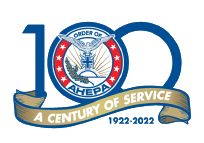Anastasius Karavelles
Anastasios Karavelis (Anastasius Karavelles), born in Zakynthos in 1812, was the son of John Karavelles a Greek Orthodox priest. At the age of 4, Anastasios' family moved to Malta. It is in Malta where Anastasios and Photius Kavasalis met as young boys and became fast friends. At the request of his father, Anastasios accompanied Photius to the United States.
Reverend Pliny Fisk promised to keep the boys together, and be instructed in the same schools. But, in order to unite them in still closer and more endearing relationship to each other, they were made brothers, through the rare "adelphopoiesis" ceremony of the Greek Orthodox Church.
Anastasios Karavelis was 11 years old when he arrived in Salem, Massachusetts on February 22, 1823 on the brig America with Captain Dewing. Anastasios read modern Greek and Italian, and converse in Maltese. Following nearly the same course of study as Photius, he studied at the Foreign Mission School in Cornwall, Connecticut; Hopkins Academy in New Haven, Connecticut; Mount Pleasant Institute in Amherst; and graduated from Amherst College in 1831. At Amherst, Anastasios was a member of the Alexandrian Society anf the college band.
After a short teaching career in America, he returned to Greece. Upon returning to Greece, Anastasios taught at the Evangelical Gymnasio in Athens. He reunited with his family in Kalamata where he opened a Hellenic school. He studied law eventually becoming a judge in Athens, and then moved with his family to the island of Syros where he became the director of telegraphs.
In 1871, Photius and Anastasios re-united on the island of Syros. Photius "found his friend surrounded by an interesting family and in comfortable circumstances. Their meeting was a joyous one to both; and, after hearty greetings and expressions of delight, they found no lack of subjects for interesting conversation."
It is believed that Anastasios passed away in 1880.
Father John Karavelles' letter to the Reverend Pliny Fisk:
Most respected SIR AND BROTHER IN CHRIST –
The design, useful to men and pleasing to God, of your Society, is known to all, nor less so is the benevolent disposition of your nation (more enlightened than any other nation), towards our Hellenic race, as experience has already shown, and facts will hereafter confirm, in time, a mutual American-Hellenic union.
Guided by these thoughts, and willing (according to my paternal duty) to give with the means of livelihood, the means of living well, to my son, Anastasius Karavelles, behold, according to your request, I commit him to your goodness and your philhellenic care, that you may send him, accompanied by the Greek lad, Photius Kavasales, sent for the same purpose, to the academy of that well governed country; that he may obtain from that life giving fountain, by attention, study, and meditation, the necessary lights of education and good conduct, and in time, be able to employ those useful means, not only for his own good, but for that of the now afflicted Greece, and especially for the honor and reputation of his American instructors and benefactors.
>Besides this, excuse me that I am so bold as to request that you will take the trouble to inform me, in writing an answer to this, as to the following inquiries, viz.:
1. The design for which my son, Anastasius, is sent.
2. To what place, and to what part of America.
3. In what studies he will be engaged, and in what academy.
4. Whence, and how, the necessaries of life.
5. And lastly, in what way, after finishing his studies, he will be able to return, God willing, to his country, to Zante, a Hellenic island, whether directly, or by way of Europe, or for greater security by this island; likewise concerning a correspondence with him in his absence, how, and through whom it may be maintained consistently. And I remain, with all due respect, your friend and brother In Christ,
John KARAVELLES, PRIEST.
(Source: Photius Fisk, a Biography by Lyman F. Hodge. Pages 24-25)
A letter from Anastasius Karavelles to Photius Kavasalis Fisk written on November 26, 1871:
DEAR PHOTIUS:
I received with the greatest pleasure your portrait and the Park Street views. I am very sad that I have not been able to fulfil my promise to you to go to Athens. I am a slave to a miserable salary, and consequently not free to do according to my wishes. We are not brothers by necessity, but by our own choice and circumstances. We left Malta when boys together, and with the same hopes ventured the great ocean of chance to find a home and happiness. Fortunately, we are both safe from the danger of destitution in this life.
We had the happiness to see each other, separated as we had been by oceans. We may see each other again, God knows. The early impressions of our boyhood have been indelibly fixed upon our minds and hearts. We have loved each other truly and fraternally. My dear Photius, remember me ever, as I will remember you. If idolatry is a sin, I will commit that sin in remembering you always; and, seeing your portrait, I will love you sincerely to the end of my life.
Mrs. Karavelles and my children desire to unite with me in expressing their sincere thanks to you for the love you bear to me, and participate in this proffered love. Please write to me how long you intend to remain in Athens, and if you intend to come again to Syros.
I remain yours, truly and sincerely,
A. Karavelles.
(Source: Photius Fisk, a Biography by Lyman F. Hodge. Pages 133-134)
Bibliography
Hodge, Lyman F. Photius Fisk, a Biography. Boston, 1891.
Biographical Record of the Alumni of Amherst College. Amherst College, 1883.
